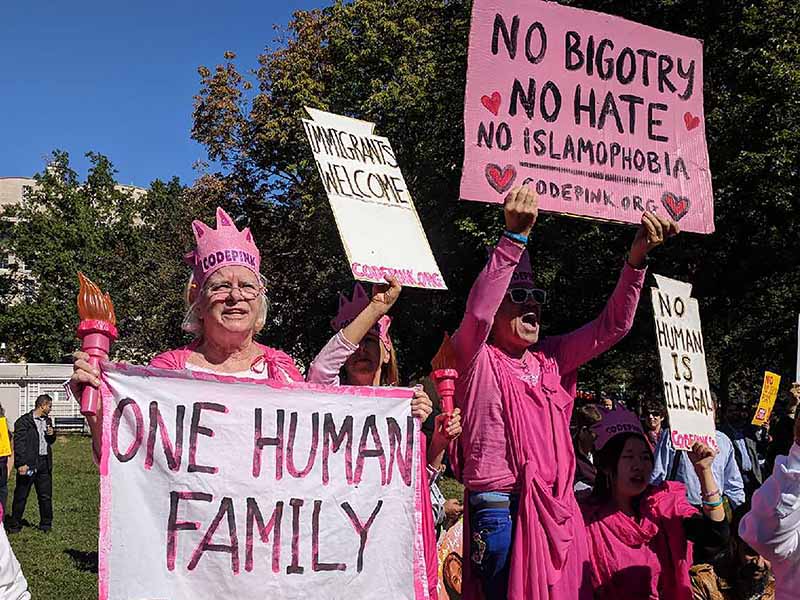WASHINGTON (RNS) — After a second federal judge ruled this week against the Trump administration’s latest travel ban, protesters gathered across the street from the White House to stand in solidarity with Muslims and refugees.
Hundreds of Muslims, Jews, Christians and the religiously unaffiliated began their protest in Lafayette Square park Wednesday (Oct. 18) for the #NoMuslimBanEver March, before they walked the few blocks to the Trump International Hotel.
Muslim American protester Kalid Ali said President Trump, in a misguided attempt to protect Americans from terrorism, is punishing whole countries full of Muslims for the actions of a very few.
Ali encouraged people to speak out by saying “Mr. President, not everybody agrees with your decisions, and not everybody is a bad person. … He has to understand if there are bad people somewhere, there are many, many good people here, too.”
The protesters gathered around a large stage in the center of the park, where speakers gave personal testimonials and led the crowd in chants, including “No Muslim ban ever!”
“As we’re shouting, democracy is what this nation is all about,” said Leslie Carter, one of the religiously unaffiliated among the crowd. “And we have to work hard every day to prove that.”
Gamileh Jamil, from Buffalo, N.Y., belongs to the Arab American Community Center for Economic and Social Services and said 1 out of 3 people in the city of Buffalo are immigrants.
“We’re here to stand up and really represent all of the faces that we see on a daily basis,” she said.
“The tears, the frustrations of families being in a very traumatized, very war-stricken country and not being able to bring them in,” she continued, referring to refugees denied shelter in the U.S.
Two federal judges — one from Hawaii and a Maryland judge — temporarily blocked the ban this week.
The ban would prevent people from Iran, Libya, Syria, Yemen, Somalia, Chad, North Korea and certain Venezuelan government officials from traveling to the U.S.





